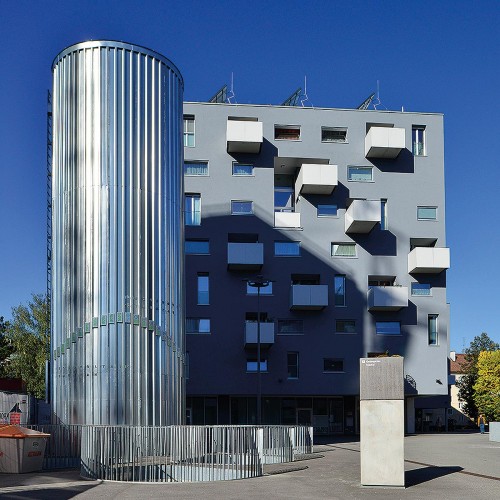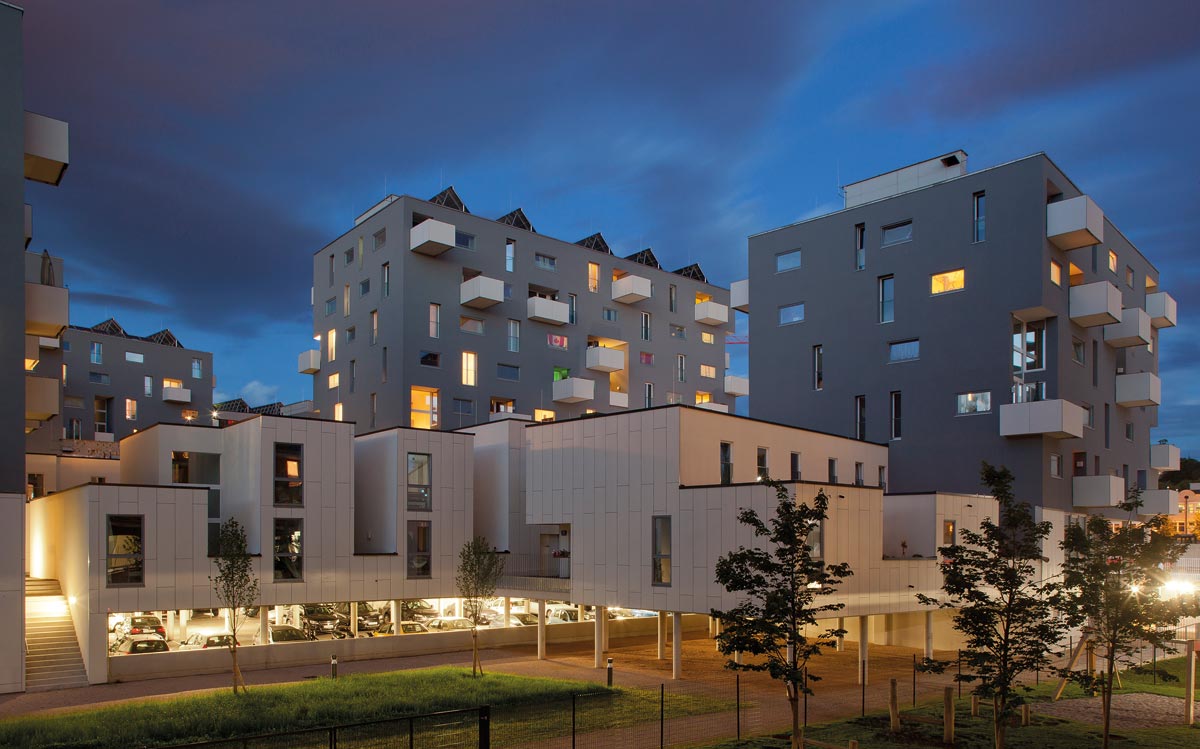There is plenty of potential for saving energy in the building sector. Roughly 40 % of overall primary energy consumption is accounted for by space heating and cooling, lighting and other uses of electricity in accommodation, offices, hospitals and schools. So new, sustainable technologies and strategies for energy supply in buildings are highly relevant if the places where we live are to develop in a climate-compatible way.
The Implementing Agreement “Energy in Buildings and Communities” (EBC) is focused on international R&D projects concerned with integrating energy-efficient, sustainable technologies in buildings and communities. 25 countries are currently taking part in the EBC programme; Austria has been represented by bmvit in this Implementing Agreement since 2006.
From single buildings to sustainable settlements
Whereas R&D in the building sector was concentrated on techno-logical innovations for individual buildings in recent years, the focus has now shifted to comprehensive energy strategies and cross-system solutions for sustainable cities and settlements.
More than half the world’s population and two-thirds of Europeans now live in cities or urban regions; for Austria the proportion is 64 %. Investigations by the OECD reveal that cities’ energy consumption accounts for a large proportion of carbon dioxide emissions around the world. To be successful, improved solutions for settlements and urban districts must be embedded in city-wide strategies and targets. Within the framework of EBC Annex 63 experts are working out recommendations for integrating energy issues into urban planning processes, and are thus helping to implement integrated energy strategies in cities, communities and regions.
Experience so far shows that the integrated planning approach can provide opportunities and benefits for all stakeholders, particularly for owners and residents. Apart from synergies in the overall system perspective on production, storage and consumption, non-technical aspects such as improved residential surroundings, local value creation or buildings‘ gaining in market value when settlements are upgraded are very worthwhile.

FLAGSHIP PROJECTT
STADTUMBAU LEHEN
With the flagship project “Stadtumbau Lehen” construction projects and ancillary measures have been coordinated and implemented since 2007, as part of renovating the Lehen district in Salzburg. The comprehensive energy strategy for the district emphasizes boosting energy efficiency by putting up ultra-efficient new buildings and renovating the existing buildings to make them sustainable, while aiming to integrate a maximum of renewables by exploiting solar energy (via collectors and PV) systematically.
Four promoters and ten teams of architects, two scientific institutes, the City of Salzburg and two departments within the Provincial administration are collaborating on this flagship project. To ensure uniform, defined quality standards, a subproject gives SIR – the Salzburger Institut für Raumordnung und Wohnen – responsibility for project management and coordinating the numerous partners and projects. These activities are harmonized with other flagship projects in the bmvit programme “Building of Tomorrow“ (such as urban district projects in Graz and Vienna Aspern), and the results are documented systematically.

